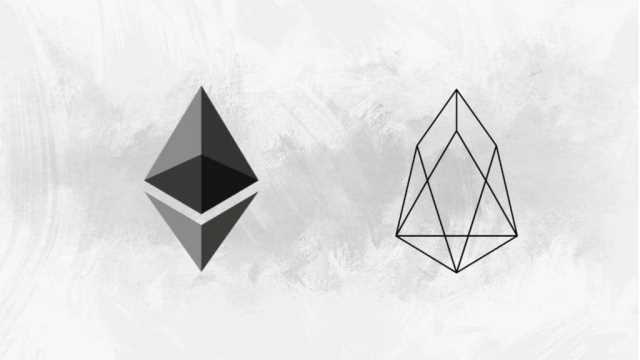Is EOS better than Ethereum or not?

Ethereum is a very popular and highly developed cryptocurrency that serves as a base of other cryptocurrencies. It isn’t news that almost everyone wants to be as successful as Ethereum. One of these projects is EOS. A lot of people don’t understand if the profit from investments into this project is real or not. Let’s consider this topic in detail.
Before we explain this topic, we need to understand what each of these tokens is all about.
About Ethereum
Ethereum is one of the most valuable cryptocurrencies in existence, second only to Bitcoin – you can’t surpass the Bitcoin. However, Ethereum is different in that everyone can gain access to its smart contracts and apps. Right now, it’s biggest smart contract issuer.
In fact, it’s rather like a place to develop your own cryptocurrencies and the software that works off Blockchain. Moreover, this endeavor is supported by the token with the same name.
Ethereum’s potential is limitless, and it’s being improved even now. Also, this cryptocurrency is energy effective. It isn’t surprising that this token is so promising. Ethereum 2.0 will be an even more important version of this cryptocurrency with an emphasis on energy effectiveness and staking.
To sum up all the information above, Ethereum is a very promising cryptocurrency. At the first sight, there aren’t any real competitors for it. Is it true or not? To check this idea, we need to describe EOS.
About EOS
This one isn’t too different from Ethereum: it’s a Blockchain project that works on smart contracts and decentralized apps.
This cryptocurrency was created on the 31st of January, 2018. It managed to take 13th place very fast. This coin is growing exponentially now. It is a reason why a lot of users consider this token as a real Ethereum killer in the future.
Actually, this crypto has a lot of unique upsides and features to offer, and a lot of the new stuff comes from the creators themselves. It can revolutionize the blockchain world.
What are they going to achieve?
What can EOS even do to compete with Ethereum? They want to focus on performance. According to the developers, usually, decentralization factor isn’t relevant for most users. The most important thing for them is performance. They want to use cryptocurrency in a simple way that is understandable for them.
To reach this goal, EOS developers propose:
- Making the usage of decentralized applications easier. We can say something similar about developing. Creating decentralized applications on this platform requires minimal coding.
- Making navigation of decentralized applications simpler. People don’t need to have any special technical skills to use them. What they really need is basic computer skills that are required for using the internet. These should be enough.
- Focusing on database and account management. It can make an experience of people more useful and interesting.
- Improving the speed of operations. Every second, a million transactions are performed. This is a very good performance.
What mechanisms are in the core of EOS?
If we are to understand EOS’ potential over Ethereum, we’ll have to know more about it. Well, this project has its own OS, and they position it like a counterpart of Google Play or App Store with countless apps available for installment right away.
So, an easy mechanism of work attracts investors and makes this token grow faster in contrast to Bitcoin or Ethereum. There are also these advantages:
- EOS is based on its own blockchain, and the consensus is achieved using the full delegated proof of stake algorithm. Thanks to the open-source license, developers can create decentralized applications very fast. This fact is very useful for businesses. Actually, this token is far more adapted for business and has a bigger number of features in comparison to Ethereum.
- Also, this operating system has a user-friendly interface. The developers want to make this coin look like a web-application with the same performance. The performance of existing Ethereum dApps isn’t so good, which stops a lot of people from using this coin.
- Finally, there is a constitution with rules on how this cryptocurrency works, yet it remains decentralized. We need this set of rules to make payments fair. Moreover, it makes cryptocurrency more decentralized despite the fact that at the first sight, we don’t think so.
There are four groups that control Bitcoin and two that control Ethereum. In comparison to them, EOS has 21 stakeholders who aren’t miners. This decentralized structure makes transactions fair, and there isn’t any negative impact on this cryptocurrency. The user experience is also greater in contrast to Ethereum.
EOS team of developers
The information about the team of developers is the most important thing that we need to understand before we buy any cryptocurrency. The creator of EOS is Daniel Larimer. This is a very famous person in the cryptocurrency sphere.
Also, he created well-known brands such as Steemit and Bitshares.
Steemit is a crypto-oriented social media project, where users are rewarded with crypto for being active. If you’re new to the market, you might consider joining up. Mr. Larimer himself posts there very frequently, and you can learn a lot more EOS token from Steemit.
The Bitshares exchange focuses on cryptocurrencies, and it’s completely decentralized. Thanks to this fact, users are protected from scammers.
Both projects have become a base for EOS. The experience that was gained in the projects above was implemented in the EOS cryptocurrency. Now, the company that owns this cryptocurrency is called Block.One and Larimer is a CTO of it. The main belief of the owner is that while regular applications are faster than those based on blockchain technologies, they won’t be attractive for people.
The second owner of this cryptocurrency is Brendan Blomer, an individual highly experienced in business sciences and investment markets, as well as technology in general.
To sum up, EOS is a very promising cryptocurrency.
